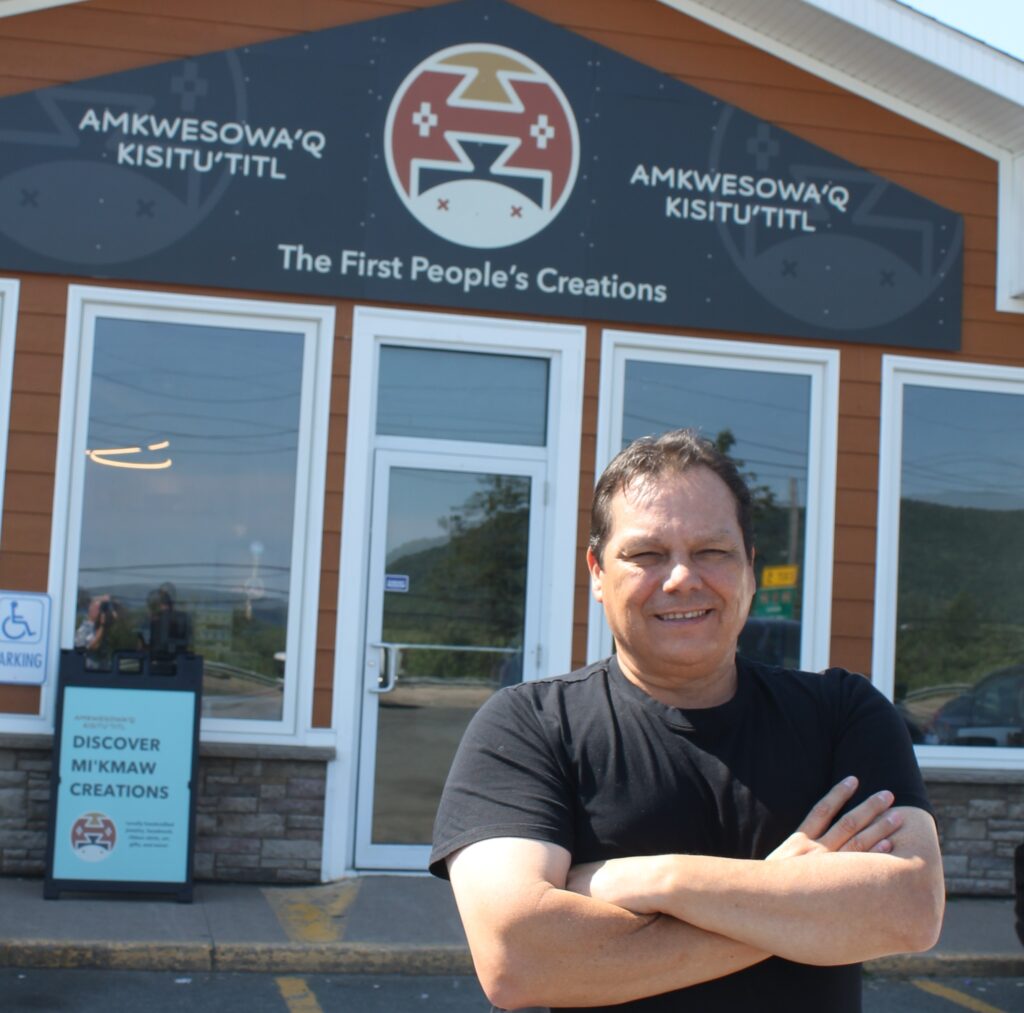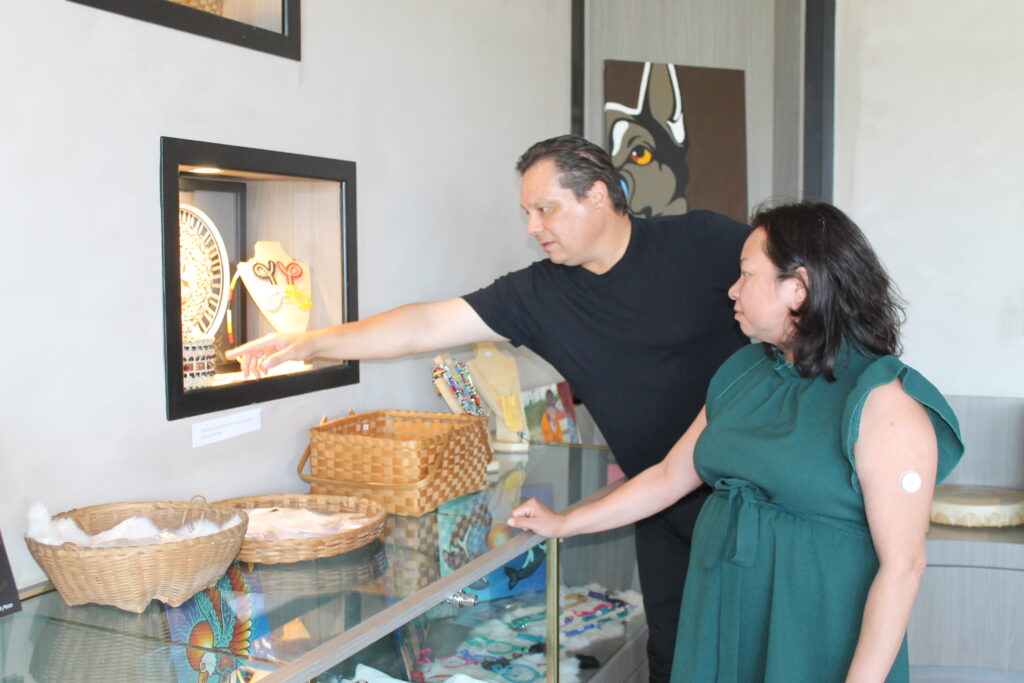Truth and Reconciliation Day 2025: Bernard says the fight for change needs to happen 365 days a year
October 24, 2025

Each year, September 30 marks the National Day for Truth & Reconciliation. Robert Bernard says he has to be hopeful that meaningful change can come that will improve the lives of Indigenous Canadians.
“We’re very resilient people,” he adds. “If we didn’t find hope in something, we’d have given up long ago.”
Bernard, a Mi’kmaw man who grew up in We’koma’q First Nation and still lives there, is the owner of Indigenous Guide Consulting Services. He’s been working with Indigenous communities across Atlantic Canada for more than 30 years in the areas of culture, heritage, tourism and business development. He also conducts cross-cultural training seminars for clients.
He says Truth and Reconciliation Day, which was first observed in 2021, has meant different things to him at different times over those four years, noting that it’s caused him to reflect on why so many horrible things have happened to his people.
Among those are the atrocities resulting from Canada’s Indian Residential School (IRS) system, the church-run and government-funded institutions which took Indigenous children against their will, subjecting them to abuse and neglect in order to assimilate them into white European culture and religion.
Indigenous rights activists led a successful lawsuit, the largest class-action settlement in Canadian history, which mandated apologies from the Canadian government and official church bodies, as well as allocating approximately $2 billion to be distributed among survivors of the IRS system.
The settlement led to the creation of the Truth and Reconciliation Commission (TRC) in 2008, a government sanctioned body that spent several years interviewing IRS survivors, and it released its final report in 2015, recommending 94 calls to action for the government to right such historic wrongs.
“When you talk about Truth and Reconciliation, you realize you’re an Indigenous person who’s been targeted by government, essentially to be wiped off this earth,” Bernard says. “At the end of the day, that’s a harsh truth to live with, because it begs the question, ‘why?’”
“Why did this happen and why is it continuing to happen? And that’s the other reality – it’s continuing to happen, but in different ways.”
He says coming to terms with what has happened to Indigenous Canadians like himself has been a 30-year journey, ever since he began working with government representatives.
“That is when I began to realize that something else is happening here,” he explains. “There’s another reason why people talk to us in a certain way or work with us in a certain way – or don’t want to work with us in a certain way, or just ignore us in a certain way.”
“There are some people who actually care, but they are stuck in a system where they are limited in what they can do,” he adds. “There are people out there who really want to make change happen and want to educate people, but there’s just as many people – and likely even more – who like the status quo.”
Bernard says the horrors of residential schools is just part of the systemic oppression of Indigenous Canadians.
“Imagine if you had two or three children under the age of 10 and they were taken away from you,” he says, “and not just your children, but your brother’s children, your sister’s children, your nation’s children across the country. You had no chance to change that because you’d be either beaten or shot or put in jail.”
“The sense of place has been taken away from us for so long and yet, somehow, our people are still here, language has somehow held on, yet it’s dying quickly. Our people are trying their best to reclaim our culture, our language, our connection to the environment, our protection of resources, but there’s just so much that’s happened and the impacts of it are so deep and multi-generational.”
A growing part of the work of Indigenous Guide Consulting Services are the cross-cultural awareness seminars which Bernard has been conducting. He says a key element of achieving real change is educating people about the wrongs experienced by Indigenous Canadians.
“I’ve probably done 100 training courses in the last 10 years, and I would say 90 per cent of the people I’ve trained don’t know 90 per cent of what I share with them,” he says. “To some degree it doesn’t surprise me, only because I know what I faced growing up.”
“There was a lot of racism,” he recalls. “There still is, but it’s not as bad. People are starting to understand, and it’s starting to become a requirement that you need to take these cross-cultural awareness training courses. But I think where it’s changed the most is in the school systems where they’ve actually began to implement some changes – kids are finding out some of this history and they’re actually educating their parents about Indigenous history.”
Bernard says when he attended junior and senior high school in Mabou, the history of Indigenous Canadians was little more than a chapter in a textbook.
“Nobody knew what treaties were, nobody knew what a residential school was, nobody knew what centralization was, nobody knew the government created the Indian Act so that we would be all part of society and not honour the treaties that have been there since 1725,” he says.
“When we talk about Truth and Reconciliation, it’s about educating people, and people really taking the time to understand what has happened, what were the impacts, and how that is still affecting us today. We’re still living in a reserve system that was established in 1876. Where does the term reserve come from? It comes from a space you set aside for animals. That is how government and the leadership at the time thought about, as they said, Indian people.”
He says if Indigenous people have a responsibility when it comes to the 94 calls of action presented in the TRC’s report, “it is to our children, to our culture, to our language and continuing to protect the environment.”
Bernard says sometimes the slow pace of progress can be frustrating.
“The TRC report with 94 recommendations came out in 2015,” he says. “That’s 10 years. What have we done about it?”
He says he sees progress from time to time, but that meaningful change can only happen when people, both Indigenous and non-Indigenous Canadians, can openly discuss the truths of the systemic abuse that has occurred.
“It’s kind of like the Northern Lights,” he explains. “They happen every once in a while, and you’re amazed when they happen and they’re so beautiful, and then they go away.”
“That’s how I feel about opportunities for change. When they happen, they’re wonderful and everyone feels good about it and then it goes away. Where is the follow-up? Where is the accountability? Where is the implementation? Why are things the same? Why haven’t we changed?”
Bernard says although his people continue to be ruled by the Indian Act of 1876, an act which established the reserve system which is still in place a century and a half later, it’s only been the last 25 or 50 years that Indigenous communities are standing up to society. He says if there’s reason for hope it’s in the Indigenous and non-Indigenous youth.
“I think the solution is in our children, society’s children, to arm them with information, because sometimes we’ve already learned what we feel comfortable about knowing and learning,” he says. “So, it will likely take another generation or two to either lose it totally, or to begin to recognize it, and value it and put it where it deserves to be, and then truth and reconciliation is happening every day.”
“It’s never too late for people to change their views and to learn something and to do the right thing. Some people will think it’s too hard. It’s not something we expect to happen overnight. It takes time.”

(Photo: Dave MacNeil)